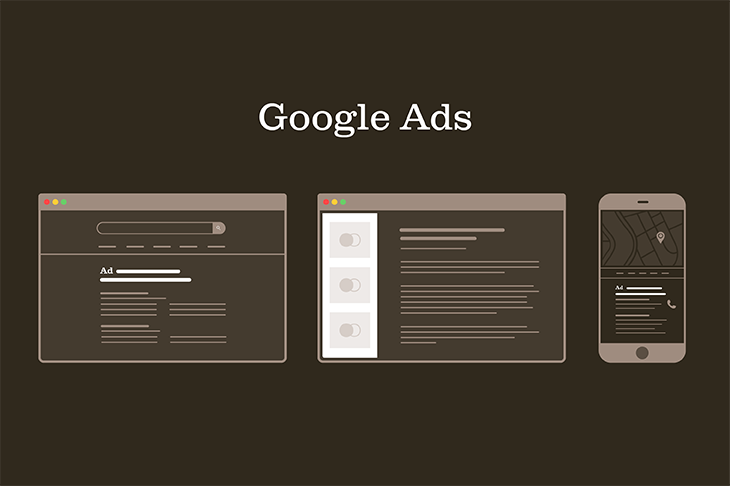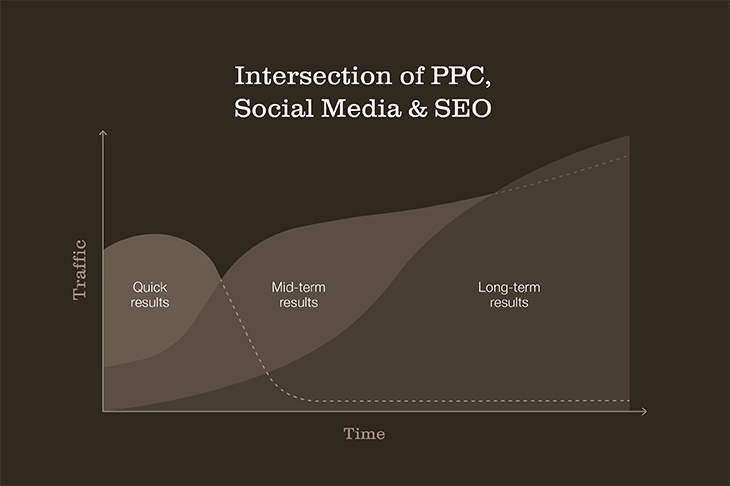Heidi Bodfish Digital Account Manager
- Digital Marketing
- Marketing
PPC: A Game-Changer in B2B Digital Marketing
In our ever-evolving landscape of digital marketing, Heidi Bodfish, Digital Account Manager, has taken to our blog to discuss all things pay-per-click (PPC) advertising. As an essential strand of a multichannel campaign, Heidi is going to take you through the what, how and why of B2B PPC campaigns.

With nearly six years of experience in the world of marketing and three years of experience within PPC advertising, I have seen how it’s really become a very big tool in shaping successful digital marketing strategies for B2B brands. PPC isn’t just about buying clicks; it’s more about engineering an exact, data-driven approach to capturing audiences’ attention at the right moment, in the right place.
What is PPC?

PPC is a form of advertising that charges only when an ad is clicked on. PPC is directly related to getting people on the website instantly. Unlike SEO and content marketing, which generate visits organically over time, the PPC model allows you to buy visits upfront. It’s a quick win that offers reach and, most importantly, generates more precise and targeted leads in the competitive B2B world.
From October 2000, when Google AdWords was launched, PPC has come a long way. Today, it’s not just text-based advertising within search engine results. Additional components of this ecosystem include display and remarketing ads and Artificial Intelligence-driven advertising solutions, all of which have become quite critical for B2B marketers to make an impact.
Evolution and Significance of PPC in B2B Marketing.
PPC has evolved from simple text-based advertisements into a very extensive product. This now includes search advertisements, display advertisements, video ads, and shopping ad formats. The ad formats enable B2B marketers to reach their prospective clients at any stage of the buyer’s journey, be it awareness or decision-making.
Due to the recent advancement in AI, PPC campaigns are becoming much more intelligent and efficient. This is done through AI-driven tools, such as Google’s Smart Bidding and responsive search ads, that optimise ad performance in real time using machine learning, so your ads reach your desired audience at the right time. This is particularly beneficial for B2B marketers who aim for precision targeting of niche audiences or may require A/B testing.
How is PPC used?
PPC is something that can be strategically deployed throughout the customer journey. Whether you’re launching a new product or service, announcing a whitepaper or event, or just simply driving brand awareness, PPC represents a direct line to your target audience. By using tools like Google Trends and keyword research, we can identify what your audience is searching for, then position your ads accordingly.
Another crucial part of PPC is remarketing, which enables one to re-engage any potential clients that have interacted with the brand but haven’t converted. This keeps your brand top of mind as they move through their decision-making process.
The Power of Display Ads & Remarketing
Display ads are a powerhouse in the hands of a B2B marketer, appearing on nearly all websites available within Google’s Display Network. These ads are perfect for building your brand with thought leadership content or highlighting a special offer. Eye-catching in design, they can be targeted to specific groups based on their demographics, interests, or even past interactions with your site.
Going one level deeper with remarketing involves displaying your ads to users who have previously visited your website. It is an unbelievably effective method of lead nurturing—bringing them back to your site to convert. Using today’s advanced AI technology, one can create remarketing campaigns that are highly customisable in real time and able to deliver highly personalised content, that resonates with individual users.
Performance max campaigns take this to an extreme, allowing you to hit every corner of Google’s ad inventory from a single campaign, from search to display, YouTube, discover, and many more. It uses AI to automatically optimise ad creative and ad placement across channels for maximum performance on your goals.
Google Trends and PPC Software.
Understanding what your audience is searching for is key to building great PPC campaigns. Use Google Trends to easily discover the future topics and search behaviours of your audience and stay in front of them.
Modern PPC software platforms such as SEMrush, Ahrefs, and HubSpot offer deep analytics and insights on how to optimise campaigns. Use tools to track performance, adjust your bids, and further optimise keywords to assure your PPC strategy aligns with your business goals.
Why PPC Matters in B2B Marketing.
• Immediate Results: Instantly, after launching a campaign, PPC has the benefit of driving traffic and getting leads.
• Improved Brand Visibility: Well-crafted PPC ads will ensure that your brand completely dominates the search engine results, leading to brand credibility and trust.
• Targeting: target the masses with either keywords, locations or demographics, even the time of the day.
• Cost Control: Since a user pays exclusively when he or she clicks on an advertisement, we are in complete control of the budget if set correctly, ensuring return on investment.
• Measurable Performance: PPC-linked campaigns provide analytics that bring out how each aspect is performing; allowing room for clear optimisations.
• Complementary to SEO: PPC and SEO work in conjunction to maximise your online visibility and presence. While SEO builds up long-term visibility, PPC provides immediate exposure and can inform your SEO strategy with keyword testing and audience insights to give it a boost.
PPC: A Key Element of Your B2B Strategy.

In today’s digital world, it is hard to imagine a B2B marketer performing their duties effectively without PPC. With the correct landscape and keyword research it forms a direct path to the audience, increases the visibility of your brand, and measures that can be attuned further down the line. Mix and match PPC with other digital marketing strategies, such as SEO, content, and social media, to build an end-to-end process that drives growth for your brand within the industry.